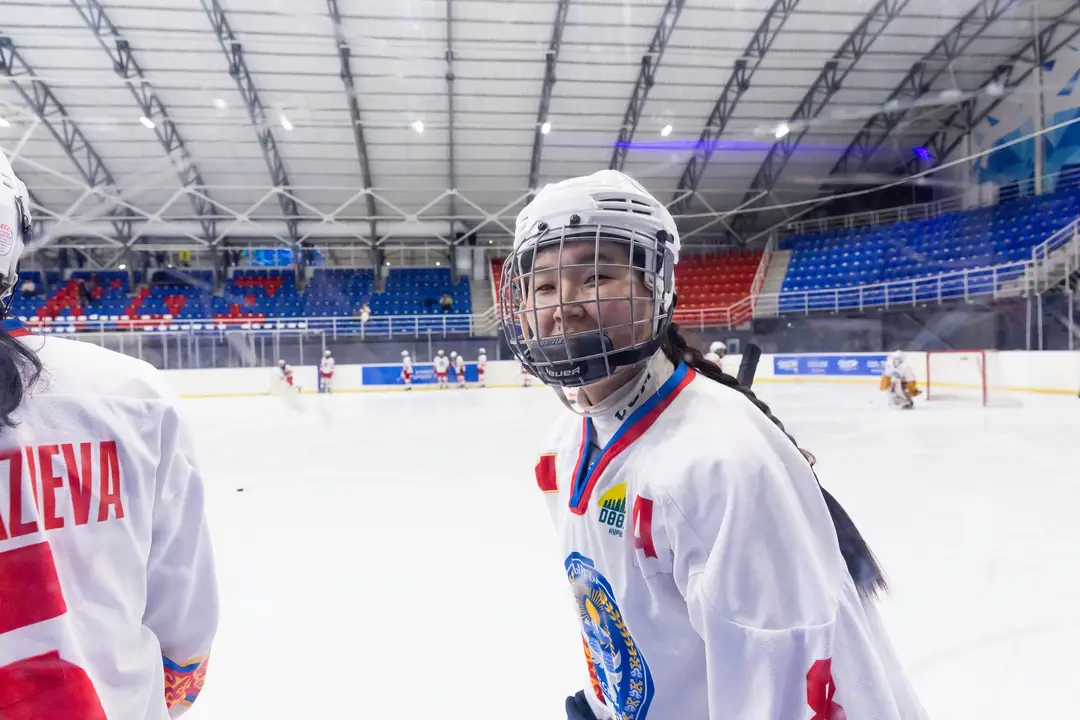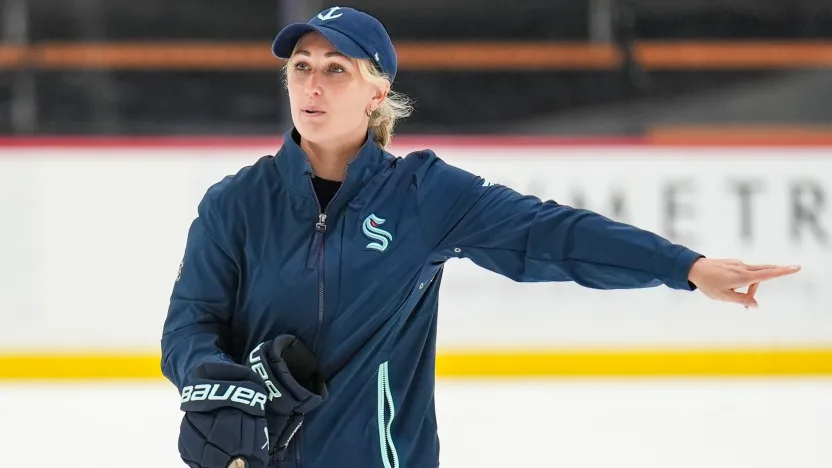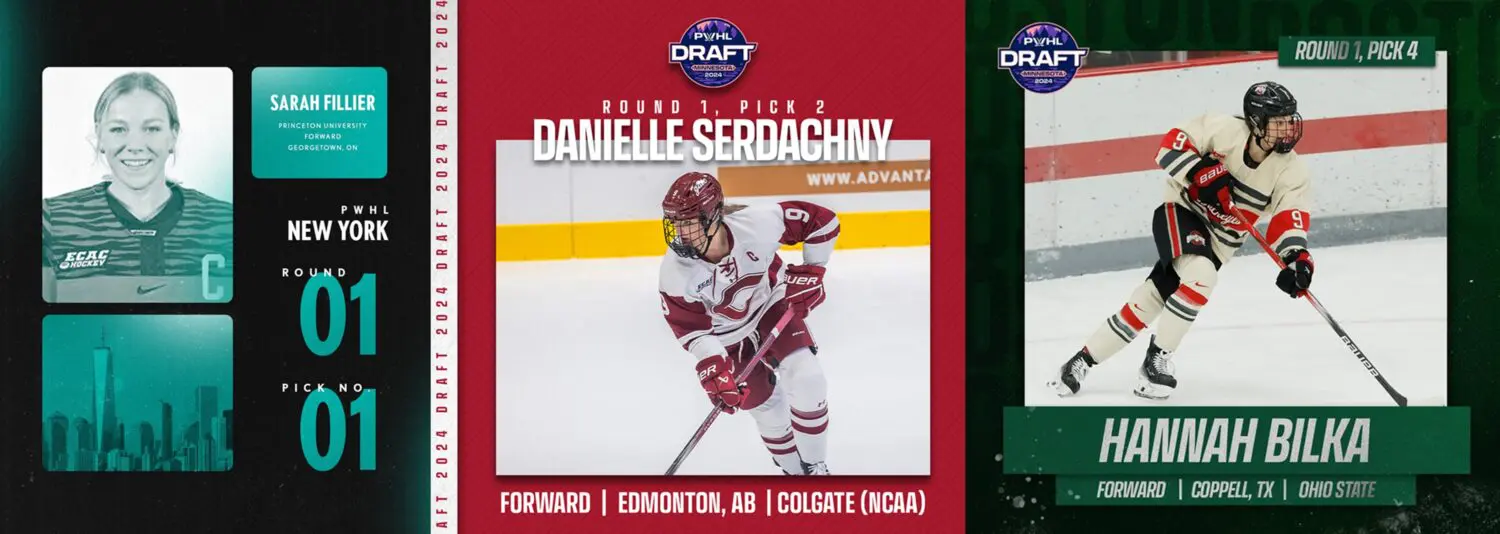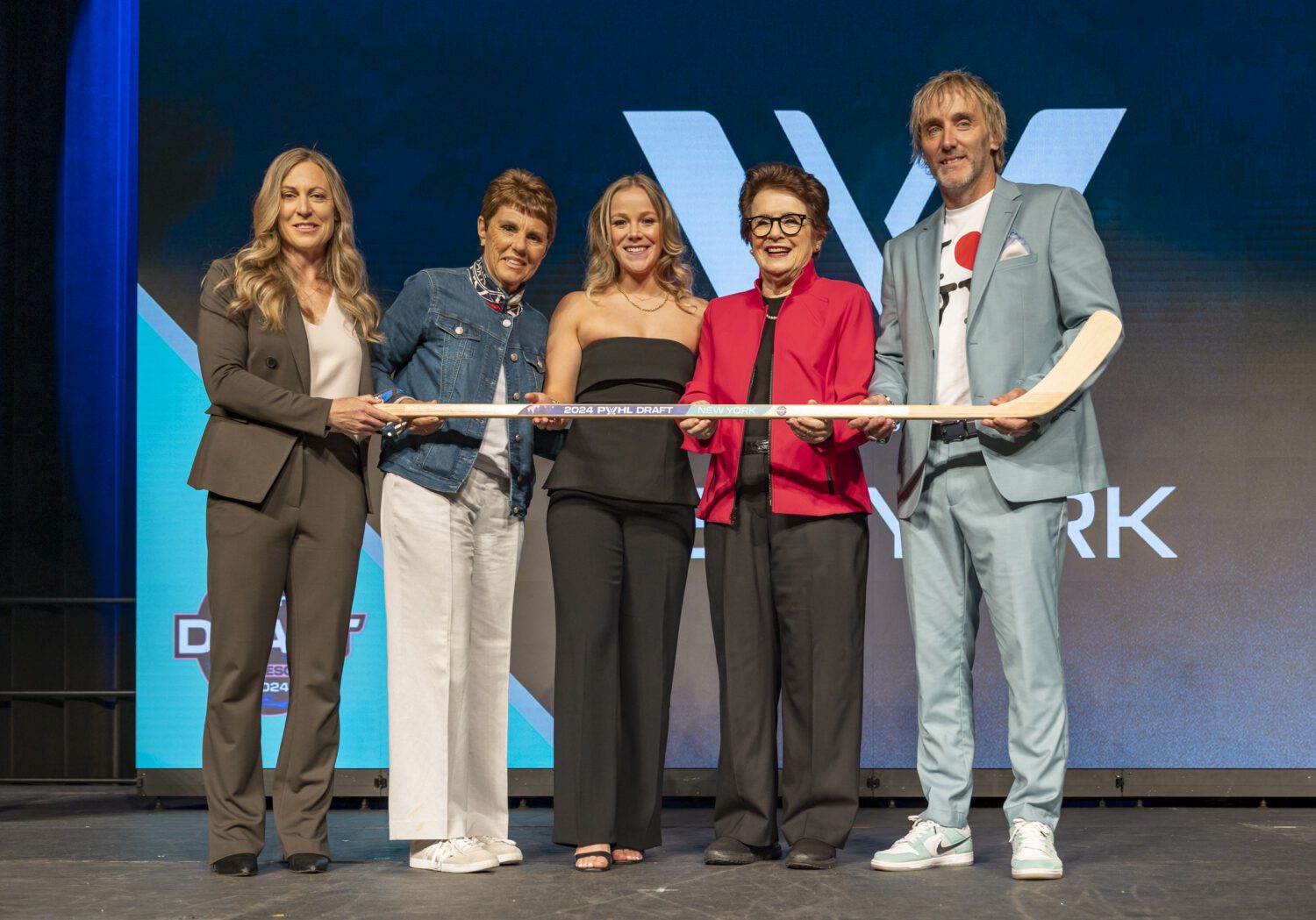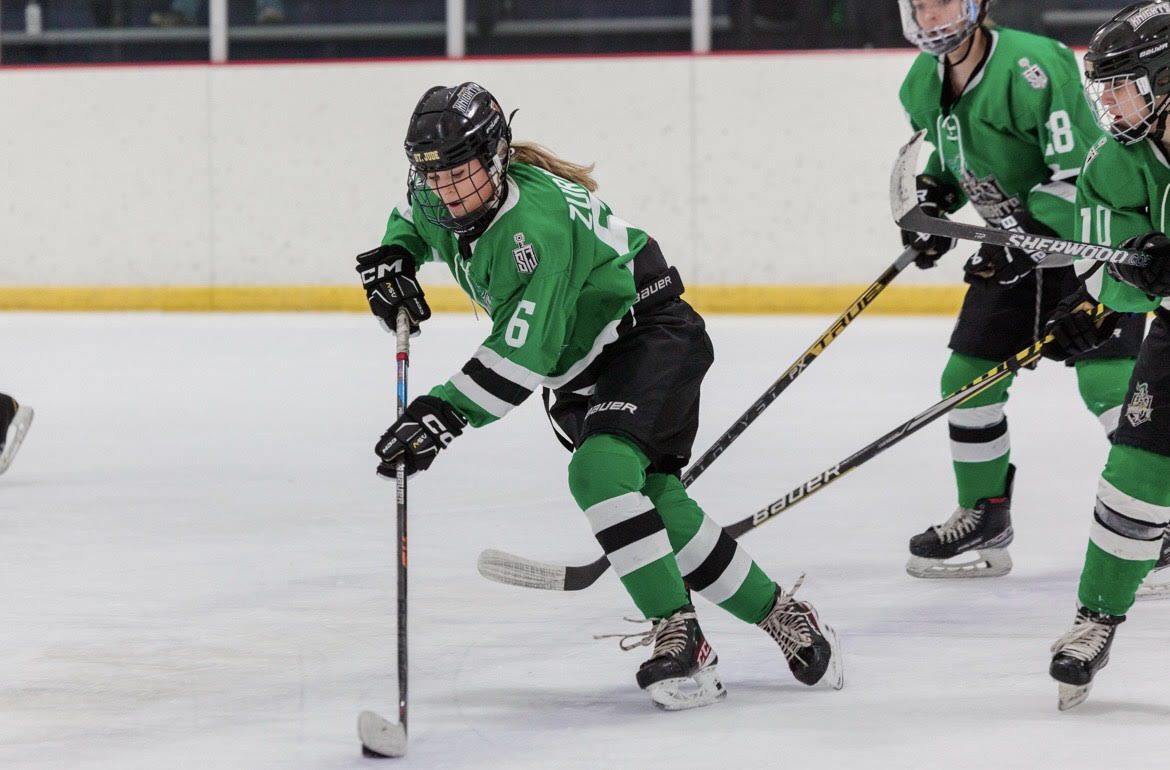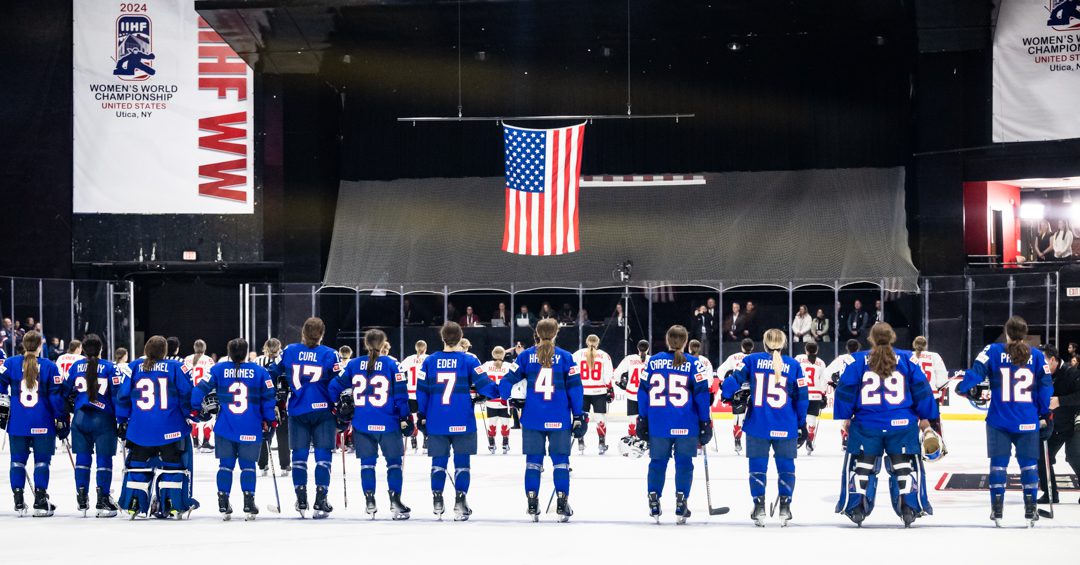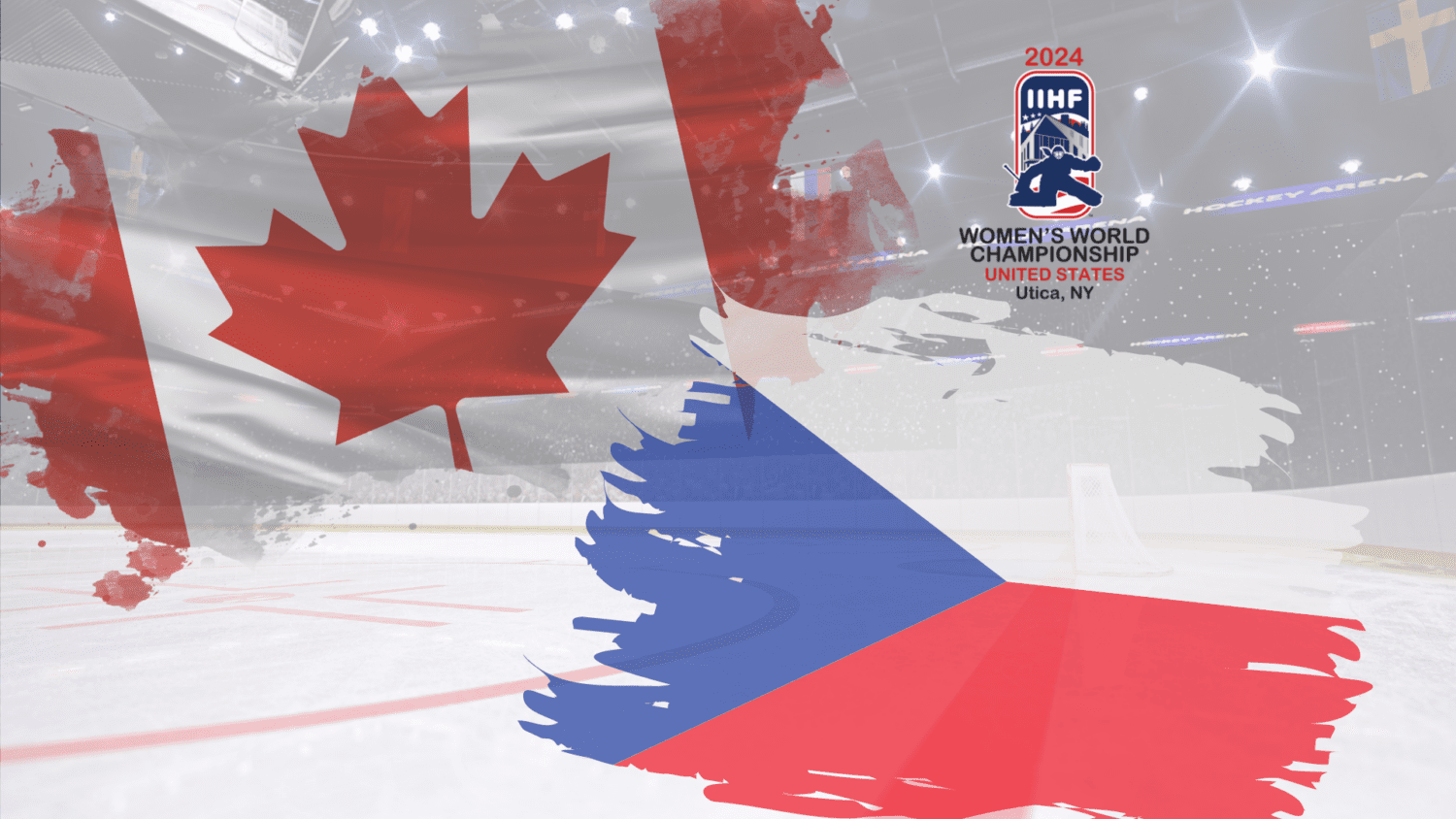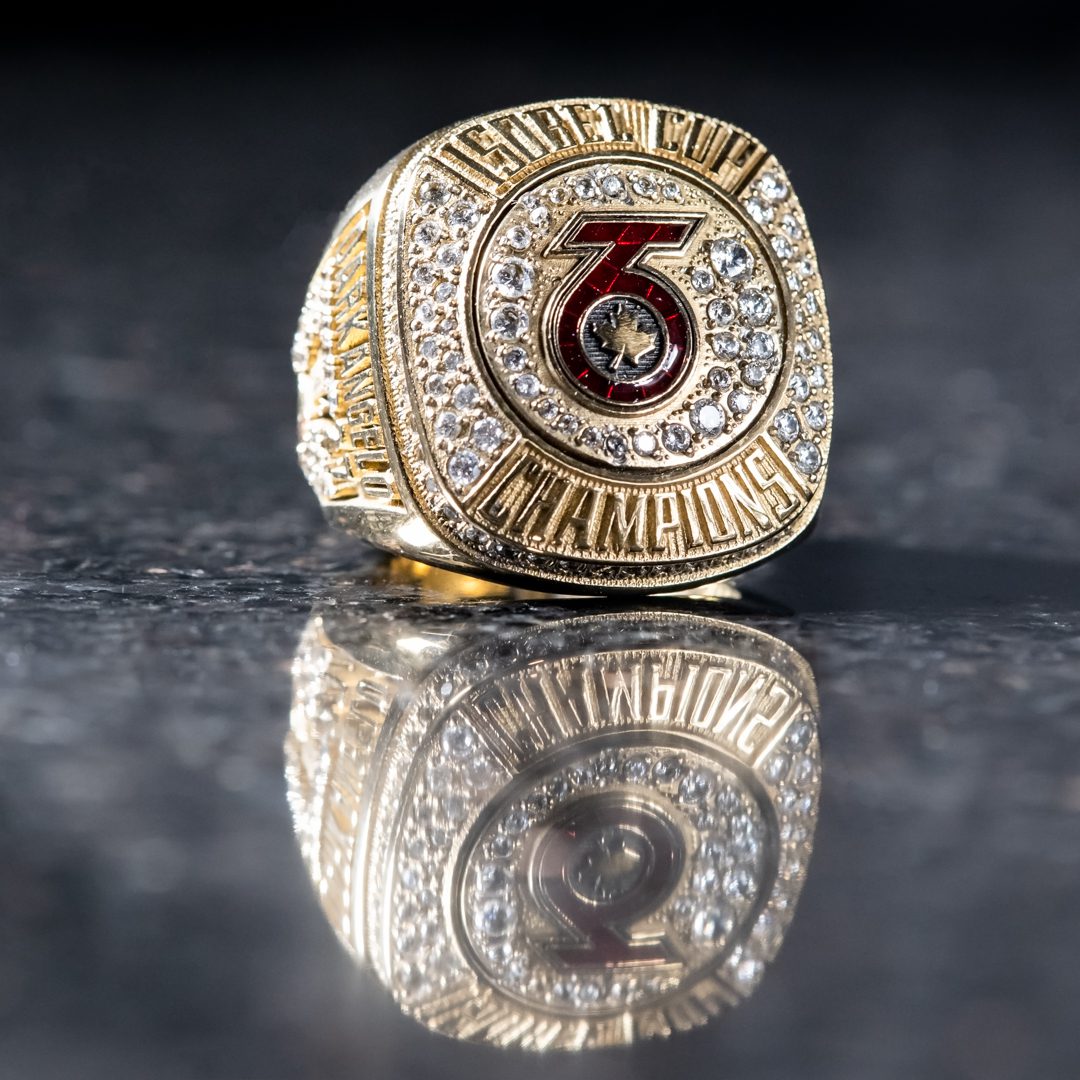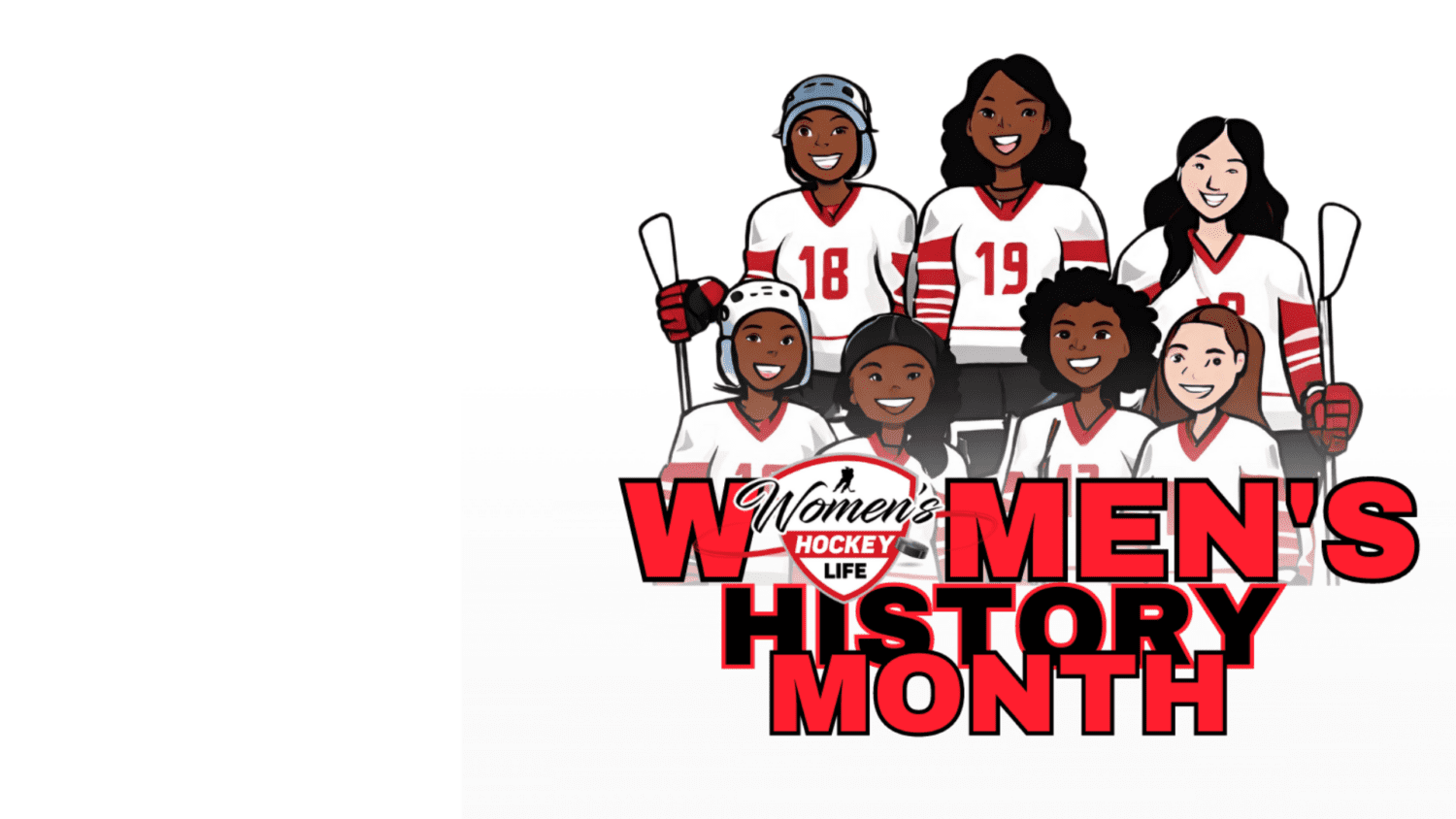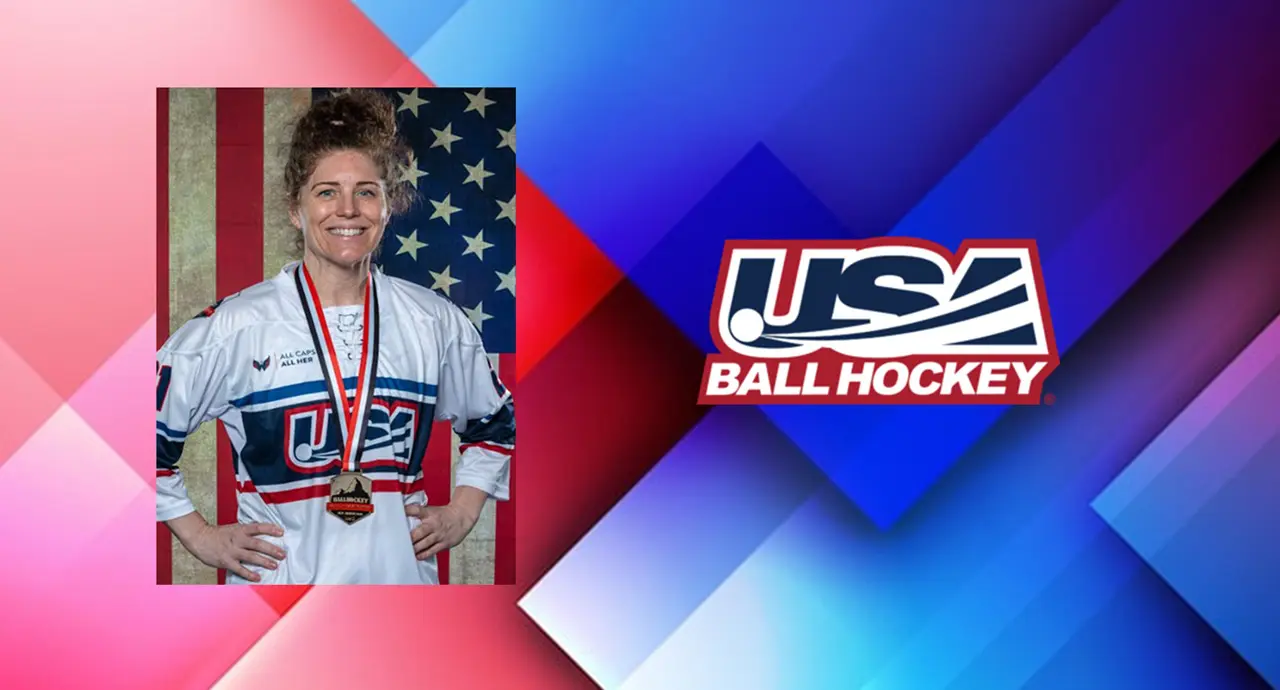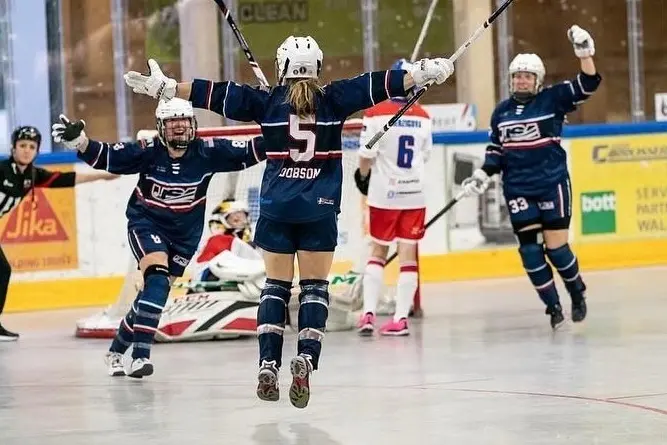SO, YOU WANT TO BE A HOCKEY COACH?
Our WHL Brand Ambassador Team is back again with some advice for those who want to start coaching hockey!
Don’t forget to check out their previous advice: 5 tips to start playing hockey and 10 ways to help support girls’ and women’s hockey.
HOW AND WHEN TO START COACHING
(Hint: it’s as early or as late as you want!)
“I got into coaching as a senior in high school when my longtime head coach left our team to coach the 12U girls. I began by running a station at practice and demonstrating drills to get service project hours for the National Honors Society, but found that I enjoyed working with young girls who were beginning to develop their skills.
Coaching took a backseat in my freshman year at university, but I still helped out with a U12 house team that my dad was coaching as my schedule allowed. I just went out there and goofed around with the girls. I must have had a good influence on them because two years later, several parents requested that I assist when my dad was named head coach of the 12s again. I jumped at the opportunity to give back to the program responsible for my own personal and athletic development. In the following season, my dad and I both joined my former head coach as assistants of his U14 Tier II team.” – Maggie Benson
“I went onto the USA Hockey website and looked to see if any district reps could direct me to coaching a team down here in FLA. I emailed the rep and gave her my number. She called me back within a day and set me up with a team.” – Kassi Abbott
“I began as an assistant at the suggestion of the head coach of the team. It was rewarding and literally life changing. It is second only to parenting in its rewards.
Reach out to organizations. I can scarcely think of a hockey organization that will not take on assistant coaches in any sport. Most of them are desperate to get coaches and are really enthused at young people giving back to the community.” – Daniel Brown
“I got into coaching as a volunteer assignment for my school in Grade 10. I love mentoring and it gave me a chance to teach little goalies good habits and it was also a good self check.” – Bella McKee
“I would start out by approaching a coach that you look up to and respect, someone whose coaching philosophy aligns well with your own principles. Ask if they need volunteers to help out during practices. It’s a great way to see if you like the coaching aspect of the game and to get some preliminary experience with player development. I would advise taking on an assistant coach position before attempting to run your own team because it’s a great opportunity to learn from someone more experienced. Coaching is very different from playing and requires a much different approach in terms of preparation.” – Maggie Benson
“I suggest starting as an assistant coach to a head coach you appreciate or admire and learning as much as you can from them.” – Mia Macpherson
“I used coaching as an opportunity to volunteer in high school. I loved it. It was a great way to connect with a younger generation of athletes in my association. I feel like as much as I taught them things, they also taught me a lot.” – Mikayla Guarasci
PAY ATTENTION TO YOUR SURROUNDINGS
“Keep an extremely open mind – watch everything that is around you (games, other coaches, practices, camps, clinics, etc) and figure out how you can use it in your own positive way. Learn from your own experiences and always know that each player is their own individual. It’s about working with both the individual and the team. Never forget that everyone wants to enjoy their time on the ice no matter how competitive the level is.” – Lauren Patterson
“Don’t be afraid to ask questions. Communicate effectively with other coaches. Take advantage of any resources available to you. Coaching handbooks are great, but there are a plethora of drills available online and there are so many YouTube videos that demonstrate drills.
Know what systems your team runs and focus on drills that simulate game situations that work effectively with those systems. Don’t implement drills for the sake of doing drills. Being able to stickhandle around a set of cones is great for building puck skills, but your players aren’t going to be stick handling around stationary objects in a game. Keep that in mind and find a balance between skill-building and team systems.” – Maggie Benson
LEARN AND PREPARE
“Prepare, prepare, prepare. The more ready you are for your team, the better your players will respond and the more they will get out of the time you have together.” – Lauren Patterson
“Read, read, read about coaches and coaching philosophy and leadership. The book “Coach” about John Wooden should be the first book that you buy. Absorb all that you can about sport specific coaching. Lean on other coaches around you who are not a part of your organization and create mentor, protege relationships with them. Follow coaching experts on social media and above all, let your ego go and don’t fall in love with the sound of your own voice but the sound of your athletes enjoying your coaching and excelling under your patient guidance.” – Daniel Brown
“Always strive to learn and accept new ways of doing things even if they might not be what you’re used to. For example, I come from an association and town that ran more traditional hockey practices. But where I coach it’s a lot more of the USA Hockey ADM station based practices. This last year I’d say the other coaches and I found a happy medium.
If you’re coaching in a new town like I am, I would say make as many connections as you can throughout youth, high school, and adult hockey. I guess no matter what I try to be the coach and person that I would’ve wanted when I was younger.” – Hannah Griffin
“Go to as many classes and seminars as you can, especially when you first start out. Also, go watch a few practices of other coaches. This way you can get drill ideas, ice time management, and how to utilize your assistant coaches.” – Keith York Jr.
“Ask for support from other current coaches that you know, trust, and respect.
Be patient and listen to the players and other coaches for advice, talk with them and be a leader” – Janine Martinez
“For beginner coaches, you should do some research on the type of coach you want to be. Think back to the coaches you had. Think about what you liked and what you didn’t like about their coaching styles. Think about what you’d do differently. Also, talk to the other coaches you’re working with and see what they would like to see from you.” – Kassi Abbott
“Too often I hear good people and good players who are nervous about getting into coaching. I’ve heard everything from the time commitment, the stress, dealing with parents, or simply the fear of not being good enough of a coach. You really won’t have any idea until you put yourself in the position. Most parents are grateful for the time you invest into their players. Most kids are eager to please. The time commitment becomes something you look forward to. It can be the best part of your day.
But, don’t be afraid to walk away if the stress is too much with a particular team or organization. A support system is so important on and off the ice from coaches to organizational leaders. No one goes into a program planning on leaving, but sometimes you have to step away. Starting fresh with a new organization can be a blessing. Use your past experiences to make the next team/season ever better than before.” – Lauren Patterson
KNOW YOUR PLAYERS
“A tip I have for younger coaches is to really connect with your players. Don’t just act like you’re their coach, act like their friend as well. It will help grow a better team atmosphere and better relationship between coach and player. I found being only a few years older than the girls I coached helped me adjust to coaching so much quicker than if I were older than them because I was able to be their friend and almost a big sister to the players. I was able to communicate with them at a level that they could very easily understand because I was closer to their age. I could relate to them and whatever they were thinking or going through because it wasn’t long ago that I was in the same shoes as them.” – Krissy Draper
“I also believe it is very important to be aware of who your players are and what kind of coaching is most effective for your specific team and players. Have fun coaching and don’t be afraid to share and use your experiences as motivation and resources.” – Bella McKee
“Establish a boundary between yourself and your players. Having fun is an important element, but you’re their coach at the end of the day and your players need to understand that. Don’t be afraid to joke around with them, but make sure they know when you’re being serious. Most of the coaches I’ve played for have done an excellent job of defining a line between themselves and the players, but there have been a few who have crossed the line and it tends to create an awkward vibe in the locker room.” – Maggie Benson
HAVE PERSPECTIVE
“Be humble, you might have been a great player who achieved great things but coaching is a different ball of wax. It is teaching at the core. Every year your athletes will teach you too, no matter the age or the sport. Remember that you are coaching and teaching. You will be affecting more lives in a season than most do in a lifetime. Wins and losses really do not matter; how well your athletes continue on as human beings is the ultimate goal as a youth coach.” – Daniel Brown
“These are kids. Each one is unique and has different needs. Always ask about how they are, school, and things of that sort. It helps with the “buy in” with what you are teaching. It gives you and your players a connection besides hockey and shows that you care. Those are the things that keep the kids coming back.” – Keith York Jr.
“The most important thing, in my opinion, is to never ask someone to do what you yourself can’t do, so coach in your appropriate level and don’t shy away from wearing your gear when working with students! Goalie is so technical that I have been told by many of my students that it makes it so much easier to understand when I have my gear on for them to see a visual.” – Dana Timm
HAVE FUN
“Have fun with it. Playing the game will always be my first love when it comes to hockey, but coaching is a great opportunity to develop future generations of players and to help them foster their own love of the sport. Keep in mind the things that made you love the game and don’t lose sight of them when working with your players.” – Maggie Benson
Do you want to join the #WHLAmbassador team and share your tips?
[adrotate group=”1″]
Related Articles
Categories
Recent Posts
[adrotate group=”2″]

